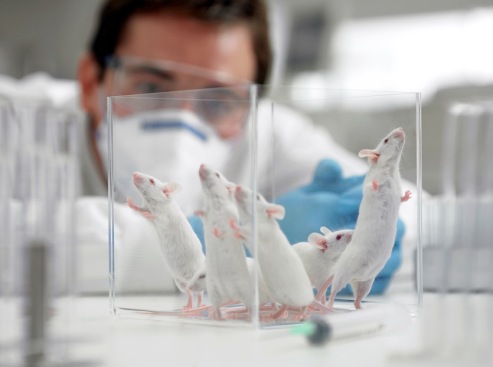You’ve made it through to the end! The final blog post, the answer to all of your burning questions (maybe), and the light at the end of the tunnel! In this final blog post, I’ll provide you with my answer to the question supported by the research that I’ve done over the past 6 weeks and then I’ll let you fly and be free!
MY QUESTION:
The Nature vs Nurture debate often uses genetics only in the nature side, but does nurture also have an impact on genetics?
MY ANSWER:
Although it appears that science has accepted that both nature and nurture play a role in the development of humans, the study of epigenetics explains that each play a role in biological terms. This helps people to realize that nature and nurture can’t be considered separately.
Now you might be thinking to yourself, “But Natalie, why on earth would you sit in the middle of the debate? Shouldn’t you pick a side?” And my answer to that is; There is no need to pick a side because there are no sides in this debate. Both nature and nurture play a valuable role in the development of humans and one isn’t more dominant than the other.
Here’s why I’m answering my question the way that I am:
As mentioned in a previous blog post, our genetic code determines a great deal of who and what we are. Started in 1990 and completed in 2003, the Human Genome Project was an international scientific research project dedicated to deciphering the human genetic code. Before the project took place, scientists estimated that “human complexity would necessitate a genome in excess of 100,000 genes” (Lipton, 2012). After the completion of the Human Genome Project scientists learned that the whole human genome consists of only 34,000 genes.
In most cases it is very difficult to establish a link between any specific gene or set of genes and specific biological processes as most traits and pathologies are associated with more than one gene. Also, with 34,000 genes the number of combinations is enormous!
The epigenome represents an ensemble of biochemical marks that are present on the DNA itself. These marks regulate the DNA’s activity and functions without changing the original DNA sequence. They are also reversible, which makes the genome flexible to respond to environment changes such as nutrition, stress, toxicity, exercise, and drugs. Some epigenetic changes last only as long as a particulate gene pathway and associated cellular activity is required while others have the potential to last a lifetime. With epigenetics, ‘nurture’ or environment can alter genes and act like genetic mutations. The most interesting part; these epigenetic changes CAN be passed down through multiple generations. This was shown through lab mice.

The study showed that mice that were subjected to disrupted maternal care ultimately revealed abnormal levels of expression for several genes associated with atypical behaviours such as anxiety and depression. When male mice that experienced disruption of maternal care mated with ‘normal’ females, they passed down epigenetic markers for increased depression and anxiety to offspring – this shows that nurture ultimately plays a role alongside nature in the development of organisms.
Another study focused on people who survived the winter of 1994-45 during World War I. At this time, food supply was reduced due to blocked food transport by Germans, and food delivery was impossible because the water canals were frozen. Famine and lack of sufficient vitamins and proteins in diets affected the whole population, especially pregnant women. Studies since then have been carried out on the longterm effects of this incident on newborn babies and individuals under such conditions and results showed that individuals born after the famine had a higher susceptibility to a subset of diseases including schizophrenia, stress sensitivity, and obesity. This study is just another example of how nurture also has an impact on our genetics.
Epigenetics provides a molecular basis to suggest that nurture has a strong impact on biologial functions and behaviour, in some cases, perhaps a stronger impact than nature (genes)
– Isabelle Mansuy and Safa Mohanna
As I mentioned before, there are no sides to pick in this debate as nature and nurture can’t be considered separately. It is the interaction between both that can produce genetic changes that can be passed on intergenerationally.
Thanks for checking out my YOU project! I hope you enjoyed it and that you learned something new! Feel free to go back and like, share, or comment on any of the posts (linked below). Thanks again!
Nat
BLOG POSTS
